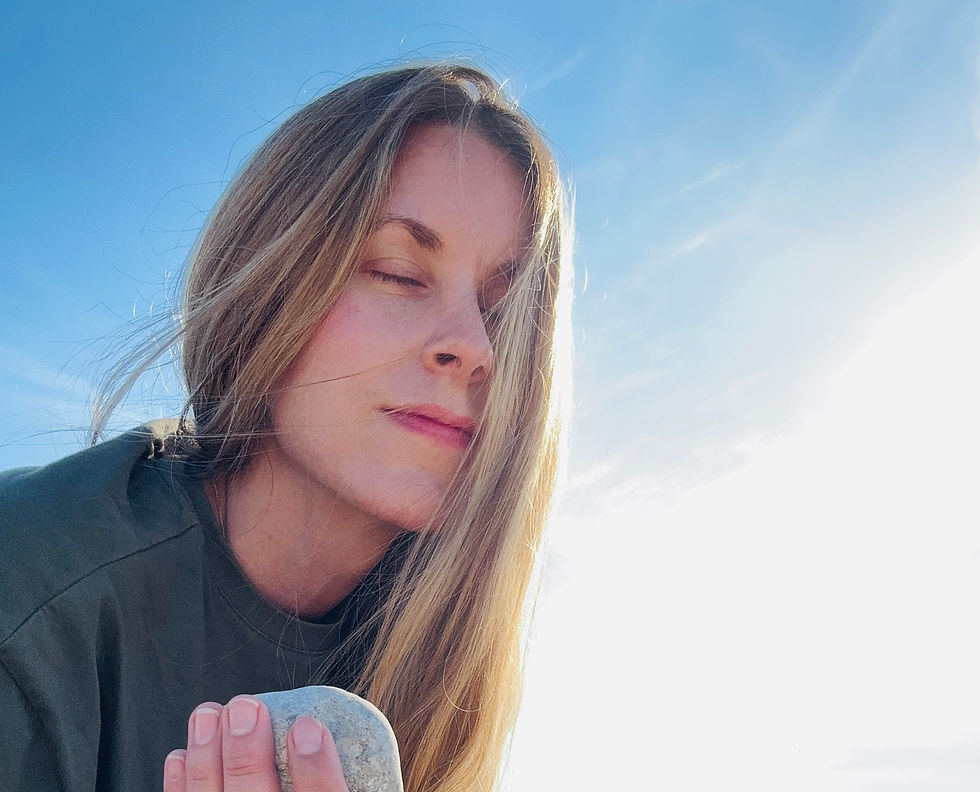Comparison: The Joy Thief
- stephaniekollmann

- Feb 14, 2024
- 3 min read
Theodore Roosevelt once said, "Comparison is the thief of joy," and this idea is incredibly relevant today. With so many opportunities to see into the lives of others through social media and other channels, it's easy to fall into the trap of comparing ourselves to others.
This often leads to feeling less happy and feeling like we're not good enough. Comparing ourselves to others is a natural human tendency, but when it becomes a constant habit, it can have detrimental effects on our mental and emotional well-being.
The first step to getting out of this trap is realizing how harmful comparing ourselves to others can be.
Constant comparison can lead to feelings of inadequacy, low self-esteem, and jealousy, undermining our confidence and happiness. It can distort our perception of reality, making us focus on what we perceive as lacking in our lives rather than appreciating what we have. This endless cycle of comparison can also stifle our personal growth, as it shifts our focus away from our unique journey and self-improvement towards an unproductive fixation on others' achievements and lifestyles.
What can you do to escape the comparison trap?
Celebrate Your Own Wins
Everyone has their own set of experiences, talents, and viewpoints. When you focus on your own achievements and use them as motivation, you start to appreciate yourself more. This self-appreciation helps you achieve even more.
Aim for Deeper Values
Real happiness comes from chasing after things that really matter—like love, kindness, empathy, and generosity. These things can't be compared. When you aim for these deeper values, you rise above the usual measures of success and find true contentment.
Value Others Over Competing
Life isn't about competing with everyone else. It's a journey we're all on together. When you start appreciating what others bring to the table, you move from competing to collaborating. This makes everyone's journey richer.
Be Grateful
Gratitude helps shift your focus to the good things you already have, moving you away from feeling like you're missing out. Being thankful makes you happier and more content with your own life.
Accept Imperfection
No one is perfect. Remembering this can help you be kinder to yourself and others. Everyone faces their own struggles and challenges, which is a part of life. We never know what really happens behind closed doors.
Change Things Up
If you catch yourself comparing to others, try changing your surroundings. Even a small change, like going for a walk, can help change your mindset.
Find Inspiration Without Comparing
It's okay to look up to others and learn from them, but try not to fall into comparing yourself to them. There's a big difference between getting inspired and feeling bad because you think you don't measure up.
Focus on Being Your Best Self
The best person to compare yourself to is you. Aim to be the best version of yourself, not to outdo others but to live a fulfilling life. Take care of yourself in all ways—physically, emotionally, and spiritually—and celebrate your own progress, no matter how small.
Comparing ourselves to others is common, but it doesn't have to be a part of our lives. By focusing on our own path, being grateful, and chasing after what really matters, we can escape the comparison trap and find true joy in our unique journey.
Answer the following questions to look at your habit of comparison, understand its roots and effects, and develop a more positive view of your personal journey and accomplishments.
Think about a recent instance when you found yourself comparing to someone else. What specifically triggered this comparison?
How did this comparison make you feel about yourself? Did it evoke feelings of inadequacy, jealousy, motivation, or something else? Describe these feelings in detail.
What specific qualities or achievements were you comparing? Why do you think these particular aspects hold such importance for you?
How does engaging in comparisons affect your behavior, mood, or decisions?
How do you define your self-worth? Is it more influenced by your own values and achievements or by how you measure up against others? Why?
How accurate do you think your comparisons are? Do you believe you have a full understanding of the other person's experiences and challenges?
Can you think of a time when you felt good about yourself without comparing to someone else? What made you feel valued or successful in that moment?
What can you learn about yourself from your tendency to compare? How can you use this insight to grow or to focus more on your own path?
What are three things you are grateful for in your own life or about yourself? How often do you reflect on these aspects?
How would you define success for yourself, independently of others? What steps can you take to focus more on your personal definition of success rather than external comparisons?

#mindfulness #feelinggood #mentalhealth #mindfulness #lifecoaching #lifecoachingtips #therapeuticcoaching #habits #change #changingpatten #awareness #comfortzone #committment #feelings #feelingstuck #filter #triggers #selfresponsibility




Comments